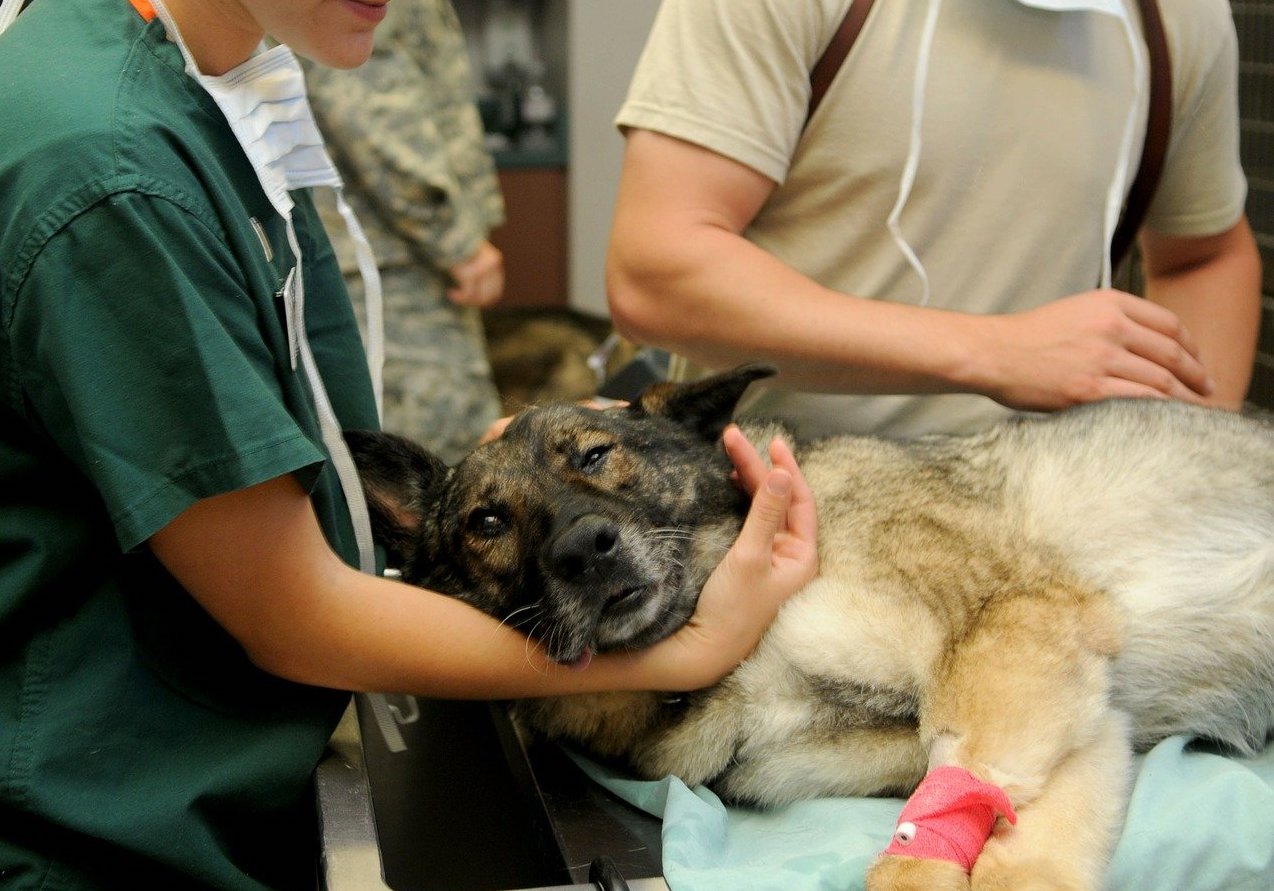
Canadian veterinarians – particularly women practitioners – think about suicide more often than the general population and suffer poorer mental health overall, a landmark study by University of Guelph researchers has found.
As an occupation, veterinarians have higher levels of stress, burnout, compassion fatigue, anxiety and depression, and reported more suicidal ideation and lower resilience than Canadians generally, according to the study conducted by researchers in the Ontario Veterinary College (OVC).
Published recently in the Journal of the American Veterinary Medical Association, the study is the first to use psychometric tools to delve into the mental health of Canadian veterinarians and the first to compare results with those of the wider population in Canada or other countries.
The Canadian Press covered the research, with stories appearing in the National Post, CTVNews.ca and elsewhere.
The team surveyed all of Canada’s roughly 12,500 veterinarians working in fields ranging from companion animal care to food safety and agricultural support from February through July 2017. About 10 per cent of practitioners, or about 1,400 veterinarians, responded.
Just over three-quarters of respondents identified as women – a key point, said lead author Jennifer Perret, a veterinarian now completing her PhD with Prof. Andria Jones-Bitton in OVC’s Department of Population Medicine.

About 30 per cent of women veterinarians reported a history of mental illness, compared with almost 27 per cent for men. Just over 15 per cent of women reported mental illness at the time of the survey, compared to just over 9 per cent for men.
Given the apparently higher prevalence of poor mental health among female veterinarians and the current demographic shift within the profession from largely male to largely female, there may be a risk of increasing mental health challenges for the veterinary profession, said the researchers.
About 80 per cent of OVC students identify as women.
“Overall, female veterinarians have higher levels of poor mental health outcomes than men,” said Perret. “We really need to focus on supports for women.”
Among the findings:
- Seventeen per cent of all respondents said they had seriously considered suicide since starting veterinary school — with no significant difference between men and women – compared to about 12 per cent of all Canadians.
- Women veterinarians reported higher stress than their male counterparts and women overall. Male practitioners reported less stress than men generally.
- All veterinarians had significantly more burnout than other medical practitioners, with rates higher for women than men.
- Clinical depression and anxiety were higher among women practitioners than among men. All veterinarians reported higher rates of depression and anxiety than veterinarians in the U.K.
- Empathic distress (also called compassion fatigue), defined as a combination of burnout and secondary traumatic stress among caregivers, was higher for women veterinarians than for men. For all veterinarians, levels of burnout and stress exceeded general population rates.
- Female veterinarians reported lower resilience than men.
Besides hampering quality of life for individual veterinarians, mental health concerns can affect their contributions to public health and their relationships with animals and clients, said the study.
Perret said veterinarians often find themselves caught between a desire to help animal patients and clients’ inability to pay for expensive diagnosis and treatment – a problem she labels as moral or ethical distress.
“We are working with a complicated, three-sided relationship,” she said. “The relationship between the veterinarian and the client is a source of a lot of stress. The relationship with the animal is the source of a lot of satisfaction. Veterinarians are drawn in two ways – you can feel really good about the job while also being fatigued.”
Asked about their support systems, participants said they were most satisfied with support from their life partners, family and friends. Participants were least satisfied with support from their workplace.
The study says research has shown that caregiver mental health can be improved through well-being interventions such as mindfulness and resilience training and improved workplace culture. The researchers also recommend management skills training, reduced working hours and more support services for veterinarians.
Study co-authors were Jones-Bitton, Jason Coe, Deep Khosa, Colleen Best and Amy Greer, all from the Department of Population Medicine. Several belong to OVC’s AWAR2E (Advancing Wellness and Resilience via Research and Education) group intended to promote health and wellness among veterinarians, veterinary students and agricultural producers.